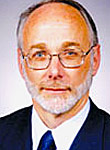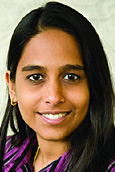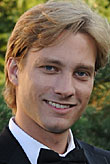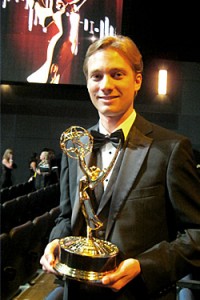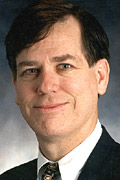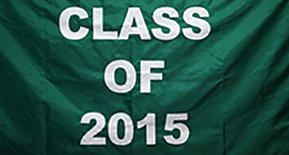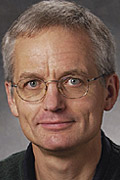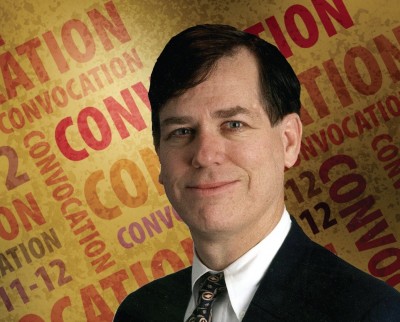 Harry M. Jansen Kraemer Jr. — author, professor, and executive partner of the Chicago-based private equity firm Madison Dearborn Partners — delivered a lesson on leadership at Lawrence University’s opening convocation of the 2011-12 academic year. Sharing the insights revealed in his book “From Values to Action: The Four Principles of Values-Based Leadership”, Kraemer encouraged students to take the leadership reins “ASAP”.
Harry M. Jansen Kraemer Jr. — author, professor, and executive partner of the Chicago-based private equity firm Madison Dearborn Partners — delivered a lesson on leadership at Lawrence University’s opening convocation of the 2011-12 academic year. Sharing the insights revealed in his book “From Values to Action: The Four Principles of Values-Based Leadership”, Kraemer encouraged students to take the leadership reins “ASAP”.
A 1977 Lawrence University graduate, Kraemer is also the former chief executive officer of the multibillion-dollar global health care company Baxter International. He generously donated 500 copies of his book for distribution to Lawrence students.
